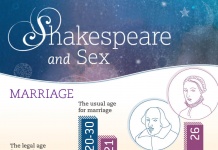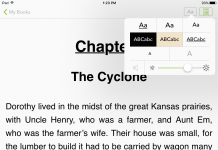 In a most interesting post, writer Maya Reynolds discusses Evan Schnittman’s position on royalties. Schnittman’s comments are important because he was the vice president of global business development for Oxford University Press, which he just left to become managing director of group sales and marketing for print and digital at Bloomsbury.
In a most interesting post, writer Maya Reynolds discusses Evan Schnittman’s position on royalties. Schnittman’s comments are important because he was the vice president of global business development for Oxford University Press, which he just left to become managing director of group sales and marketing for print and digital at Bloomsbury.
You should read her whole post, but here is a snippet:
Schnittman goes on to say:
Is there a new willingness to explore new models and new ways of doing business? A new scheme that replaces high advances with high royalties? The answer is, of course, NO WAY! The advances on new books are as immutable as ever and one would be laughed out of contention for any book where such a trade-off is proposed.
This is where I really have a problem with Schnittman’s post. He says that authors (or their representatives) are taking a “win at all cost negotiation” stance.
That’s a lot of baloney. It completely ignores the reality of recent history. Writers have been asking about higher e-book royalties for several years. I know I questioned my agent about it in 2006 when I signed my first contract with a Big Six publisher.
The Big Six flatly refused to consider a higher e-book royalty. I actually believe they did everything they could to slow down the growth of the e-book market even while they built their digital warehouses. Remember that Big Six publisher who priced the e-book HIGHER than the price of the trade paper version? Remember the argument that they hardly saved any money at all when releasing e-books despite lack of printing, shipping and warehousing costs?
e-Book royalties climbed to the present 25% standard when publishers realized they had no choice, not because they were being reasonable and striving for a win-win with authors.
































Mr Schnittman is correct that the $15 ebook is competing with the $30 hard cover edition because people aren’t going to buy both. The $15 ebook is also competing with the $18 retail hard cover edition and the $12 big box store price for the hard cover edition. It’s also competing with peoples choice not to buy the book.
The big publishers didn’t seem to have concerns when they were squeezing the book store percentages but now we’re supposed to believe they’re the voice of reason.
They always have the option of excluding the ebooks rights from the contract (after all I keep hearing how negligible it is) then the author can take the 70% rather then 50%.
I found Maya Reynolds’ post pretty ill-informed, actually, certainly not very illuminating – the authors’ associations have indeed been asking for higher royalties for several years, but….so? They haven’t done more than make this demand for higher royalties, on the basis of their idea that manufacturing is the biggest cost in publishing, when actually paying the author (and taking the hit on the less successful ones) is the biggest cost. Wylie’s stance does very much smack of ‘win at all cost’-and he can afford to take that position.
Her follow-up today is simply extraordinary – Apple were ‘bullied’ and Amazon ‘forced’ to go along with what the Big Six wanted. Just imagine that reality for a second.
I posted this to Mr Schnittman’s Blog: Sorry about it’s length.
I actually found this quite a well set out argument. Having said that, there are many flaws in Evan’s assumptions.
1) Evan views the eBook market as a subsidiary minority market. This justifies his aggregation argument. The truth is that any sensible spectator can see that the eBook market will become an equal portion or even a majority portion of the market in the next 10 years. Ok it may be 12 or 14 years but it is coming.
2) Evan’s viewpoint on the market is a zero sum game. This is the biggest flaw of all. I would suggest to him that eBooks are fundamentally different than hard copy books. Not only will there be many people who will own and buy both a hard copy and an eCopy, but the eBook format itself will expand the market significantly, bringing in a huge new potential readership among those who have not developed a reading habit and find hard copy books a nuisance to carry and accumulate. so I do not accept this direct battle between the eBook and the hard copy book that Even presents.
3) The price paid by the reader is now a new aggregation.
eBook RETAIL PRICE = The Production costs of the Publisher (editing, processing, e-processing) + the Marketing costs of the Publisher + Writer’s Royalty + the Publishers Margin + the eRetailer’s Margin.
It no longer includes Printing, Paper, Distribution, Wholesaler Margin and Bookshop Margin.
By taking out five significant portions of the cost normally born by the reader – and replacing those five by one new cost (eRetailer Margin) it is clear that a range of scenarios can happen.
Firstly if we are to take Evan’s Zero Sum Game, then:
a) The price of the eBook can be reduced to the Reader by the remaining four removed costs – leaving total earnings the same for all of the contributors bringing the eBook to the market – or . .
b) The price of the eBook can be left the same, to the reader, while the share of earnings split between the contributors can be reset – for example by increasing the royalty to the writer. This leaves total earnings the same for all of the contributors except the writer who gains.
Alternatively if we believe that eBooks will expand the market, then the price of the eBook can also be reduced – and whether the split of the earnings is renegotiated or not, both the Publisher and Writer will earn MORE as a result of the grown market.
Note that in all cases a significant reduction in the retail price of eBooks is wholly justified and those Publishers selling eBooks at a higher price than their hard copies are completely insane !
The question left then is whether in this new world the Writer ‘deserves’ a greater share or not. Personally I believe in the principles of a market economy. If a writer can negotiate a higher royalty because he has competing offers then good luck to him ! if he has only one offer then he has a choice between being published or not (or self publish of course – which may take on a new significance all of it’s own).
Evan’s comments about Negotiation strategy by Author’s, collectively or individually, are very well stated and correct. I believe that collective bargaining in a 20th Century Union style is a complete disaster for everyone. Establishing a reasonable negotiable ‘range’ of royalties and a base ‘fair’ contract is all well and good, but writers must negotiate their own final royalty, contract and advance etc. if Publishing is to succeed in the 21st century. Geographical rights must also be a thing of the past. The internet does not recognise international borders.